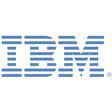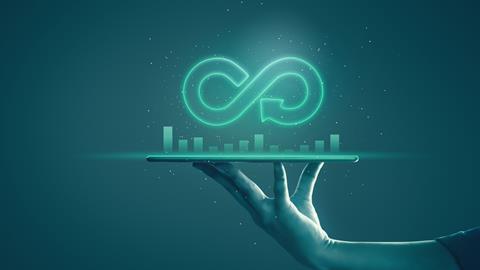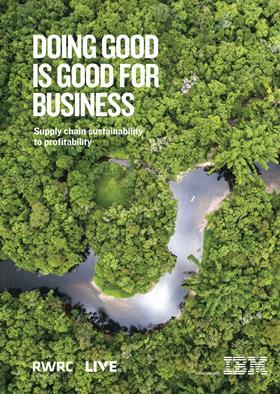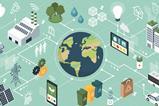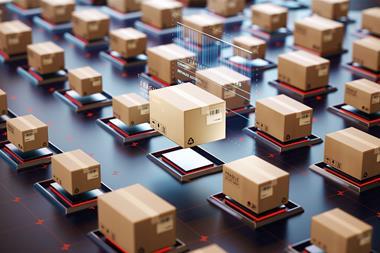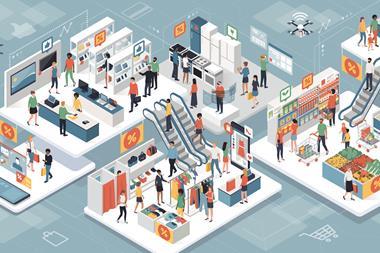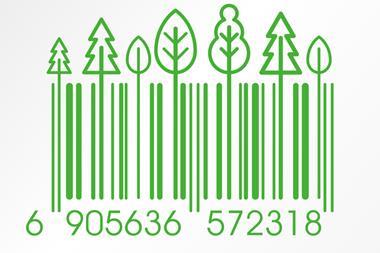IBM’s Roberto Battistoni highlights the businesses championing sustainable consumerism and the role emerging technologies can play.
In my previous blog, What is ‘purpose’ and is it worth it?, I stressed that acting with a responsible purpose is one of today’s biggest business disruptors and a source of competitive advantage.
I wish to expand on this theme by looking at some of those companies, established and new, that have already championed sustainable consumerism and also at a wave of new technologies promising to enable a more responsible pursuit of growth.
“Unilever was one of the first multinationals to understand that sustainability and growth should co-exist, betting on this as early as 2010”
Unilever was one of the first multinationals to understand that sustainability and growth should co-exist, betting on this as early as 2010. The strategy paid off; its Sustainable Living Brands consistently outgrow the other products in its portfolio.
When Kraft Heinz withdrew its Unilever takeover bid, many argued the sustainable business Unilever had built encouraged it to reject the offer on the basis that it had no strategic or financial merit.
Patagonia (1) has been another trailblazer, growing rapidly while marketing itself as an anti-growth business. Early on, Patagonia stood out for donating 1% of its annual sales to responsible businesses.
In 2010, it helped fund the Sustainable Apparel Coalition and the creation of the Higg Index (2), one of the most reliable social and environmental benchmarking tools in the industry.
Then, in 2012, Patagonia registered as a B Corporation (3) to publicly claim its intent to balance profit and purpose. Today, Patagonia is operating a circular model by encouraging its customers to take back used products for repair, recycle or exchange.
The circular economy model (4), which is based on the concept of keeping products in use, has attracted the attention of many other companies, including Globechain. The start-up helps businesses reduce waste by providing a reuse marketplace for listing unneeded items and rewarding them with a social and waste audit report.
Globechain makes money and can show an impressive list of collaborations across retail, construction and health, providing yet more evidence that a responsible business can thrive as well, if not better, than an ‘unsustainable’ one.
Another very exciting newcomer is Gnewt (5), a fully electric parcel delivery service for London, which was founded 10 years ago and later acquired by logistics specialist Menzies Distribution.
It now operates more than 100 electric vehicles in London and is aiming to expand into a new city this year. Gnewt has delivered in excess of 10 million parcels in London, reducing CO2 emissions by 67%.
“Electric parcel delivery service Gnewt has delivered in excess of 10 million parcels in London, reducing CO2 emissions by 67%”
Change is happening fast. According to the Governance & Accountability Institute, 86% of S&P 500 Index companies are now choosing to disclose their environmental, social and governance performance, but only 20% chose transparency at the turn of the millennium (6).
The pace of change has evidently accelerated in 2019, but in order for responsible consumerism to become the new norm there needs to be more collaboration among all parties, including brands, governments, regulatory bodies and technology firms.
The role of tech
Emerging technologies such as blockchain, artificial intelligence and the Internet of Things (IoT) are already playing a major role in improving efficiency and transparency across the flow of goods from source to consumer.
The consumer products supply chain has many complexities and dependencies, and the lack of visibility produces waste, stock shortages, contaminations and, ultimately, customer dissatisfaction.
Working with consumer products companies, we have been able to help clients improve their supply-chain operations while generating a sustainable impact, therefore contributing towards achieving the United Nations Sustainable Development Goals.
Upstream we provide a framework to help companies select and on-board sustainable suppliers fast and reliably. We do this by applying blockchain technology to add real-time transparency into the supplier credentials (including green credentials).
“Emerging technologies such as blockchain, artificial intelligence and IoT are already playing a major role in improving efficiency and transparency”
Perhaps the best-known application of this technology in consumer products is IBM Food Trust.
With more than 150 participating organisations worldwide, this production grade system provides a platform for companies to publish key information about the flow of their goods.
It helps in all sorts of ways, such as minimising food waste, executing surgical product recalls, improving inventory visibility and minimising fraudulent transactions.
FreShip is another example, in which we combined complementary technologies such as machine learning, IoT and blockchain to create a system that visually identifies food products for freshness.
When products are too ripe, for example, the system helps FreShip redirect the shipment to a manufacturer that could use them. By 2022, FreShip estimates that it can reduce the amount of food waste by up to 70%.
So, there is every hope that by listening to consumers, and continuing to develop and use technology, we can reach a better balance between customer satisfaction, profitability and a sustainable future.
Download Doing Good is Good for Business today to discover:
- Why retailers need to act now when it comes to sustainability
- How to tell your brand’s story, incorporating renewed green credentials
- The evolving tech driving change in sustainability measures
- Why greener practices throughout the supply chain are key
- The retailers going above and beyond to tackle the climate crisis.
References:
1. Patagonia: http://csrcentral.com/patagonia-the-clothing-company-with-a-revolutionary-approach-to-csr-sustainability/
2. Higg Index: https://apparelcoalition.org/the-higg-index/
3. Patagonia becomes B Corp: https://www.treehugger.com/corporate-responsibility/patagonia-becomes-california-benefit-corporation.html
4. Globechain: https://www.globechain.com/
5. Gnewt: https://www.gnewt.co.uk/
6. G&A Institute: https://www.ga-institute.com/press-releases/article/flash-report-86-of-sp-500-indexR-companies-publish-sustainability-responsibility-reports-in-20.html
